Filter by
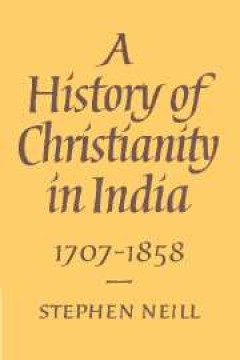
A History of Christianity in India 1707–1858
This book, a sequel to Bishop Neill's A History of Christianity in India: The Beginnings to 1707, traces its subject from the death of Aurunzib to the so-called Indian Mutiny. The history of India since 1498 is of a tremendous confrontation of cultures and religions. Since 1757, the chief part in this confrontation has been played by Britain; and the Christian missionary enterprise, especially …
- Edition
- -
- ISBN/ISSN
- 9780511520563
- Collation
- -
- Series Title
- -
- Call Number
- -
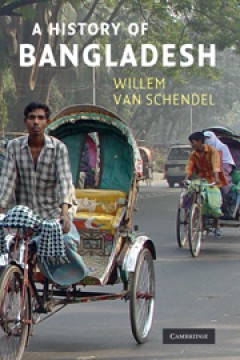
A History of Bangladesh
Bangladesh is a new name for an old land whose history is little known to the wider world. A country chiefly famous in the West for media images of poverty, underdevelopment, and natural disasters, Bangladesh did not exist as an independent state until 1971. Willem van Schendel's history reveals the country's vibrant, colourful past and its diverse culture as it navigates the extraordinary twis…
- Edition
- -
- ISBN/ISSN
- 9780511997419
- Collation
- -
- Series Title
- -
- Call Number
- -
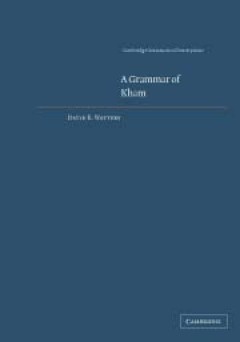
A Grammar of Kham
First published in 2002, this is a comprehensive grammatical documentation of Kham, a previously undescribed language from west-central Nepal, belonging to the Tibeto-Burman language family. The language contains a number of grammatical systems that are of immediate relevance to current work on linguistic theory, including split ergativity, a mirative system, and a rich class of derived adjecti…
- Edition
- -
- ISBN/ISSN
- 9780511486883
- Collation
- -
- Series Title
- Cambridge Grammatical Descriptions
- Call Number
- -
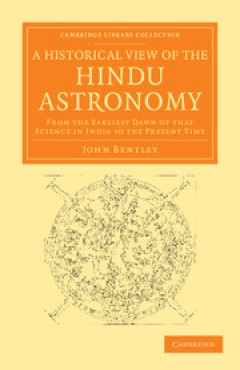
A Historical View of the Hindu Astronomy
Shrouded in poetry, the earliest accounts of Hindu astronomy can strike modern readers as obscure. They involve the marriage of the moon to twenty-seven princesses, a war between gods and giants, and shadows that give birth to planets. In this fascinating study, first published in Calcutta in 1823 and reissued here in the 1825 edition, John Bentley (c.1750–1824) strives to strip back the myth…
- Edition
- -
- ISBN/ISSN
- 9781139506533
- Collation
- -
- Series Title
- Cambridge Library Collection - South Asian History
- Call Number
- -
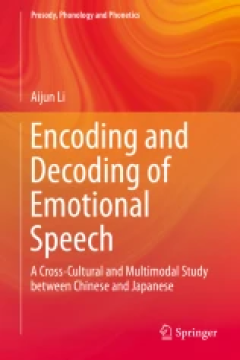
Encoding and Decoding of Emotional Speech A Cross-Cultural and Multimodal St…
This book addresses the subject of emotional speech, especially its encoding and decoding process during interactive communication, based on an improved version of Brunswik’s Lens Model. The process is shown to be influenced by the speaker’s and the listener’s linguistic and cultural backgrounds, as well as by the transmission channels used. Through both psycholinguistic and phonetic a…
- Edition
- -
- ISBN/ISSN
- 978-3-662-47691-8
- Collation
- 36 b/w illustrations, 61 illustrations in colour
- Series Title
- -
- Call Number
- -
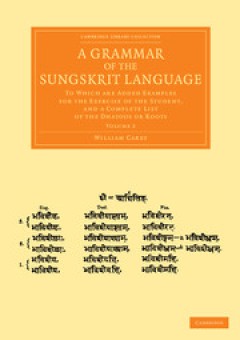
A Grammar of the Sungskrit Language to Which Are Added Examples for the Exer…
The Indo-Aryan language of Sanskrit is the primary language of Hinduism and also a scholarly language of Buddhism. Dating back to the second millennium BCE, it is considered to be the parent of most modern languages of India, and remains central to work in Indo-European studies, philology and linguistics today. First published in 1806, this is a comprehensive grammar of Sanskrit, compiled by th…
- Edition
- -
- ISBN/ISSN
- 9781139507271
- Collation
- -
- Series Title
- Cambridge Library Collection - Perspectives from the Royal Asiatic Society
- Call Number
- -

Life under pressure :mortality and living standards in Europe and Asia, 1700-…
A pioneering work in comparative history and social science that compares population behavior in response to adversity in Europe and Asia.This highly original book--the first in a series analyzing historical population behavior in Europe and Asia--pioneers a new approach to the comparative analysis of societies in the past. Using techniques of event history analysis, the authors examine 100,000…
- Edition
- -
- ISBN/ISSN
- 9780262268097
- Collation
- 1 online resource (xiv, 531 pages) :illustrations.
- Series Title
- -
- Call Number
- -

Shadows in the forest :Japan and the politics of timber in Southeast Asia
OCLC-licensed vendor bibliographic record.
- Edition
- -
- ISBN/ISSN
- 0585337888
- Collation
- 1 online resource (x, 308 pages) :illustrations, map.
- Series Title
- -
- Call Number
- -
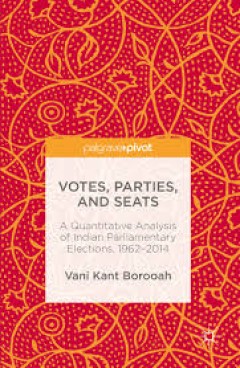
Votes, Parties, and Seats A Quantitative Analysis of Indian Parliamentary El…
This starkly lucid and timely book absorbs the nuances of the largest festival – the elections – of the world's largest democracy. Hailing from a political family, the author conveys his passion and knowledge on the intricacies, as well as the heat and dust of his national fête. All data and events have been methodically examined in this absorbing analytical work which is an indispensable …
- Edition
- -
- ISBN/ISSN
- 978-3-319-30487-8
- Collation
- -
- Series Title
- -
- Call Number
- -
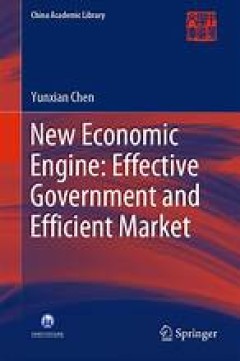
New Economic Engine: Effective Government and Efficient Market
This book contains at least three main highlights: breaking through the limitations of the mainstream Western economics system and the market theory framework, correctly explaining the successful experience of China’s reform and opening up over the past 40 years from an economic perspective, and developing a new economics system and market theory. China’s reform and opening up and innovativ…
- Edition
- 1
- ISBN/ISSN
- 978-981-15-2922-1
- Collation
- Economic
- Series Title
- -
- Call Number
- 338.1
 Computer Science, Information & General Works
Computer Science, Information & General Works  Philosophy & Psychology
Philosophy & Psychology  Religion
Religion  Social Sciences
Social Sciences  Language
Language  Pure Science
Pure Science  Applied Sciences
Applied Sciences  Art & Recreation
Art & Recreation  Literature
Literature  History & Geography
History & Geography